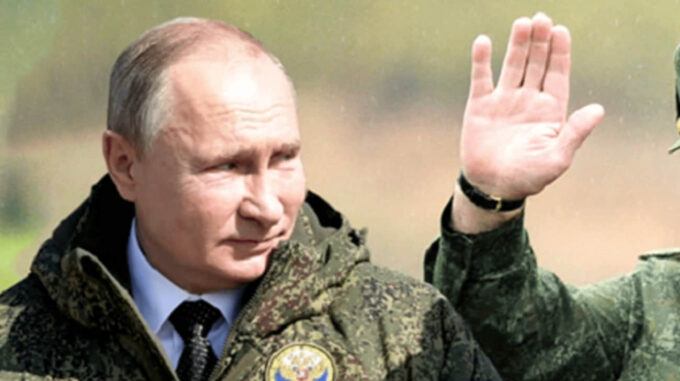British intelligence has provided a thorough explanation regarding the motives driving Vladimir Putin to adopt uncompromising rhetoric around nuclear weapons, despite the ongoing military conflict with Ukraine

In its annual report published on May 8, the UK's Ministry of Defence analyzed recent statements by the Russian leader in detail and concluded that Putin's words about "not using" nuclear weapons are based on a deeper strategic rationale. According to this review, it is quite evident that such statements are part of a long-established tactic by the Russian leadership — using nuclear rhetoric to create psychological pressure, sow confusion within the international community, and simultaneously manipulate public behavior internally in Russia. It is known that Putin expressed on May 4 that Russia "did not need" to employ nuclear weapons during the full-scale war against Ukraine and hoped that it would not come to that. British analysts argue that these statements carry not only symbolic but also practical implications — they aim to maintain high tension and keep the world in a state of uncertainty. Another important aspect is the reinforcement of the message that Russia "stands alone against the collective West," which is becoming part of a new, more aggressive rhetoric that is gradually moving away from the initial narrative of a "special military operation." Unlike earlier formulations that portrayed the war as a temporary and localized conflict, Russian propaganda now widely promotes the idea of a global struggle, with the opposite goal of justifying a prolonged war and increasing casualties. Analysts note that this rhetoric is likely intended to justify the protracted nature of the conflict, reinforce ideological justification for the effective continuation of hostilities, and lower the opponent’s morale. In their view, it may also be a deliberate effort to convince Russians that the war will last a long time and that they need to be prepared for losses and crises in everyday life, including declining living standards. In this context, internal politics also play a role, as fears and the possible use of nuclear weapons serve as tools of psychological pressure both externally and internally. Earlier, British intelligence warned of the possibility that Russia's casualty levels could reach critical levels by 2025. In particular, risks associated with a significant drop in oil prices were mentioned, which could threaten the country's financial stability and the budget for the upcoming year. This would complicate the financing of the war effort and could significantly undermine Russia's ability to sustain high defense expenditures and military mobilization. The summary provided by British analysts suggests that, despite external attempts to curb hostile rhetoric, Putin and his team continue to use nuclear language as a tool of psychological pressure, which they may deploy at any moment. Meanwhile, internal politics and the economic situation again demonstrate that the Russian leadership is preparing for a prolonged and exhausting war, likely involving high human and material losses. Essentially, this strategy creates a unique psychological space in which any use of nuclear weapons remains a potential option that could be activated under extreme necessity. Overall, British analysts conclude that Putin's rhetoric will continue to serve as an instrument of both domestic and foreign policy, aimed at justifying the longevity of the conflict, increasing Russian casualties, and psychologically preparing and consolidating internal patriotic support. It is evident that the idea of nuclear weapons remains a strategic trump card that Russia can draw from its sleeve in the most difficult moments to keep the world in fear while also supporting the internal front through mobilization and lowered living standards.

